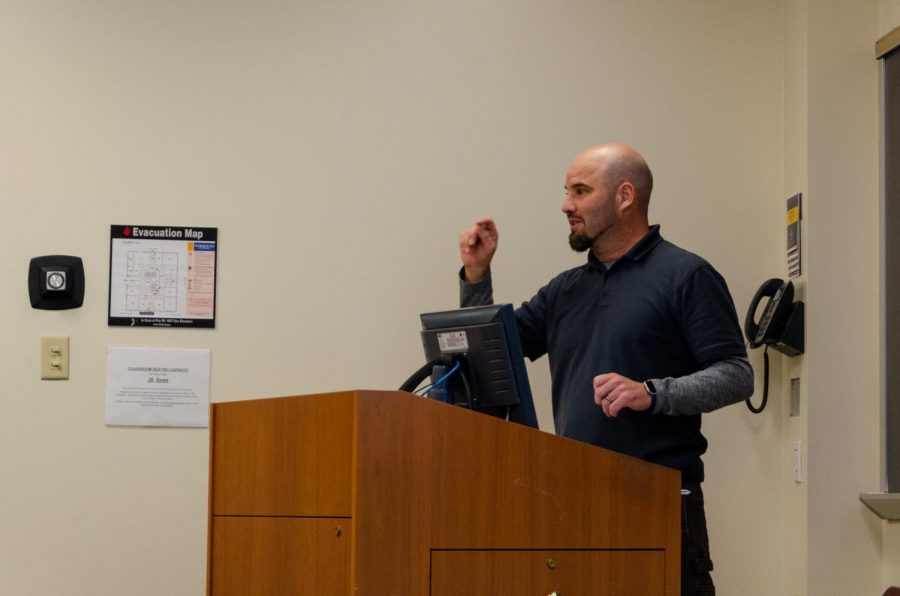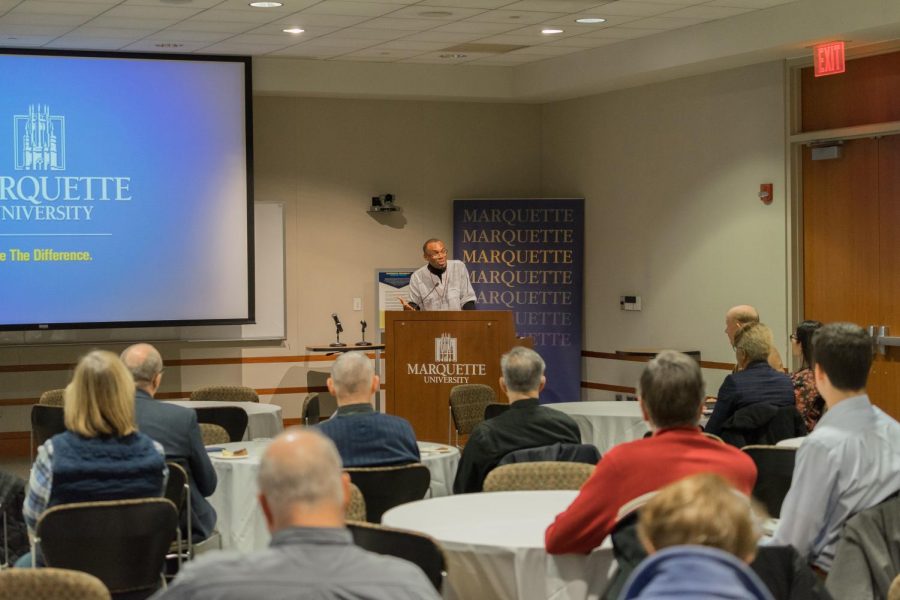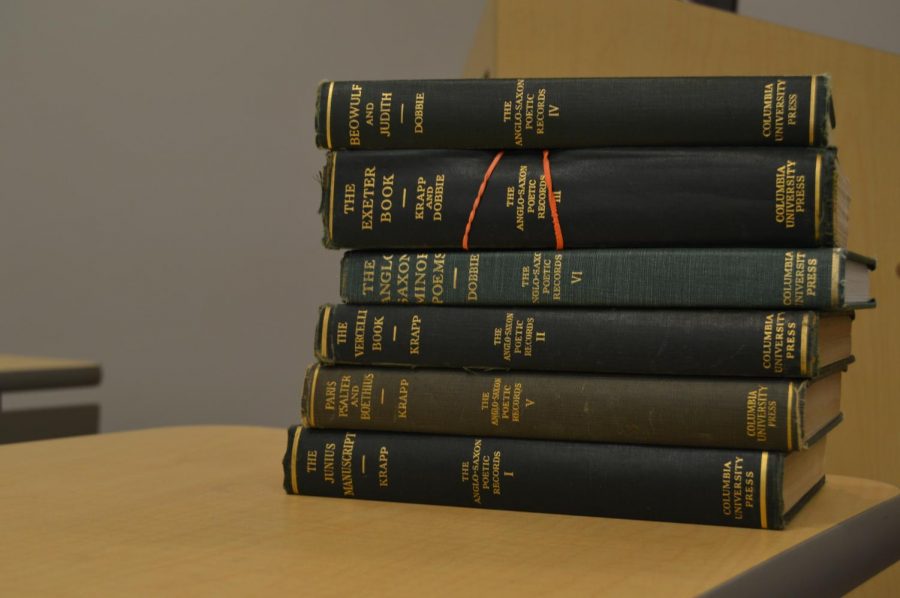In an English class taught by Thomas Durkin, a professor in the College of Arts & Sciences and a research and grant coordinator for the Center for Peacemaking, students are learning what ‘home’ means and how it pertains to human behaviors.
Durkin’s class encompasses the theme in various, creative ways as he guides his students through powerful works, discussions in small groups, informative videos, short stories and reflective writing assignments.
“I taught literature courses around identity as a graduate student,” Durkin says. “I think it is very important to explore how we are all similar.”
Durkin has been teaching for 21 years total including 5 1/2 of those years as a Teaching Assistant at Marquette University and 5 years teaching English courses such as this one in the Fall.
In a class in early October, Durkin begins by leading his students through the 2005 Kenyon College commencement speech, “This is Water” by David Foster Wallace. The speech explores how humans are concerned with the effects of certain situations on themselves without showing consideration for others. In different situations in people’s lives, there is a challenge to think about others.
The ‘Natural Default’ setting, a core term for the class meaning an ‘unconscious mindset’, sets examples for the students to discuss with one another. After watching “This is Water”, the class watched a video relating to the speech, depicting how humans often fail to care about others. An example in the speech is people waiting in a grocery line are quick to get angry, therefore the anger has the chance to continue on the ride home.
Mario Ochoa, a freshman in the College of Arts & Sciences and a student in Durkin’s class, says he enjoys the topic and lecture.
“My favorite part is being able to explore ideas of identity perspectives,” he says. “In other words, different people’s perspectives in the world around me.”
Durkin’s class also explores the theme of “home” and human behaviors with the “Choice of Thinking” factor, which influences how people see the world. It also notes how those may not know they are in “Natural Default Setting”.
In class, Durkin goes over a document called “The Invitation” by Oriah Mountain Dreamer. It examines how people can judge others for their choices and decisions and how identity’s relationship to choice is important.
Eric Bryniarski, a freshman in the College of Arts & Sciences and student in Durkin’s class, says the lessons on “Natural Default Setting” and “Choice of Thinking” reminds him of his personal life.
“One situation is being in a routine,” Bryniarski says. “In high school, I had the same routine, but after learning this concept in college I realize how important it is to not be in the ‘Natural Default Setting.'”
Durkin asks his students to think critically, challenging his students to a multitude of things, such as annotating texts for homework through essays, writing down key words and meanings in the margins.
Another concept Durkin talks about is “Capital-T Truth”. It’s the concept of what life is before death and the journey you take before the final destination.
Though Durkin teaches many theories and concepts, his lessons all relate back to human behaviors relating to what “home” means.
“Home is important because (Marquette) becomes your home for four years. It’s important to be able to come back to it after being away and still feel comforted and welcomed,” Durkin says.













